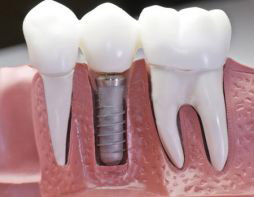PROSTHETIC DENTAL TREATMENT (DENTURE)

What is a Denture?
Dentures refer to all artificial materials designed to restore function and aesthetic details for patients who have lost their teeth for various reasons. If there are missing teeth or complete tooth loss in the mouth, various dentures are developed and treatment continues accordingly.
FIXED DENTURES
Crown
When there is excessive tooth substance loss due to decay, fractures, or other reasons, or when fillings are not possible, the teeth are reduced in size and covered. Crowns are applied as a superstructure on implants. This type of denture is known as a crown. Nowadays, metal-supported and zirconia-supported porcelain crowns are frequently used and preferred.
The natural teeth have a high level of light translucency, giving them depth and vitality. Porcelain crowns achieve nearly similar results due to their light-transmitting properties. Metal-supported porcelain crowns are more commonly used in the back teeth and are more economical compared to other porcelains.
Bridge
In cases of one or more missing teeth, the teeth adjacent to the missing tooth are appropriately reduced. Fixed restorations are created by supporting with crowns to fill the gaps. The empty spaces in between are thus filled.

Advantages of Metal-Free (Zirconia) Porcelain:
• Metal-supported porcelain crowns may appear as dark gaps under some lights (disco, camera flash, etc.), giving the impression of absence in the mouth. Full porcelain crowns transmit all kinds of light like natural teeth.
• Full porcelain crowns create an aesthetic very similar to natural teeth, whereas metal porcelain crowns may appear dull and artificial. This is why full porcelain crowns are preferred for front teeth.
• Since metal-free porcelains do not have metal in their substructure, no dark line appears at the crown-gum margin, providing a more aesthetic appearance.
• Metal-supported porcelain crowns are cemented to the tooth, while full porcelain crowns are mechanically and chemically bonded, offering higher retention and quality.
• Allergic reactions to some metals (nickel, etc.) in the substructure do not occur in full porcelain crowns.
• Full porcelain crowns maintain their aesthetic appearance even when the gums recede, unlike metal porcelain crowns which can cause an unattractive appearance at the joining area.
Where Can They Be Used?
• Single tooth crown restorations,
• Bridges consisting of 3-6 units (with an anatomical length of approximately up to 38 mm),
• Implant-supported crown-bridge work.
How Should Fixed Dentures Be Cleaned?
You should brush your teeth twice daily and pay attention to cleaning with dental floss and special brushes. This will remove plaque caused by bacteria. Extra care should be taken to clean the plaque at the junction of teeth and gums. Initially, wearing dentures may cause some difficulty during adaptation. Balanced chewing during eating is important to ensure the best fit of the denture with the tongue, lips, and cheek muscles.
The area around, beneath, and between the bridge and natural teeth should be cleaned thoroughly.
Avoid chewing hard foods and objects to prevent damage to the crowns.
MOBILE DENTURES
In cases of extensive tooth loss, removable dentures are made. These dentures make use of teeth and supporting tissues to achieve healthier results. Nowadays, they are known as clasp dentures. More aesthetic removable dentures with different retention elements other than clasps are also produced. These can be called precision attachment or snap-on dentures.
In cases of complete tooth loss, complete dentures are preferred. Complete dentures provide a more natural appearance.
Mobile dentures are named differently according to their characteristics;
Complete Dentures
If a person has lost all their teeth, complete dentures must be made.
Partial Dentures
For partial tooth loss, dentures designed with a combination of special acrylic and metal parts called clasps help attach to the teeth.
Implant-Supported Dentures
Designed as fixed or removable dentures supported by implants. Zirconia substructures can be used in implant-supported fixed dentures for those with aesthetic concerns.
How Should Mobile Dentures Be Cleaned?
• After meals, rinse your denture in water to remove food debris. Regularly brush your denture, especially before bedtime.
• You can use water, liquid soap, or denture cleaning products during brushing.
• Consult your dentist for the use of special denture brushes or normal toothbrushes.
• Clean the entire surface of the denture thoroughly.
• Occasionally, soaking your denture in special cleaning tablets or solutions is acceptable.
• After cleaning your existing teeth, the denture can be cleaned and placed back in the mouth. For complete dentures, it is sufficient for the patient to remove the dentures and rinse their mouth.







